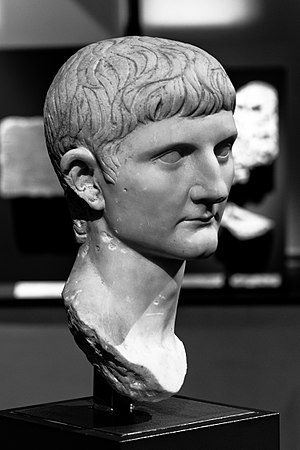AD 15 (XV) was a common year starting on Tuesday (link will display the full calendar) of the Julian calendar. At the time, it was known as the Year of the Consulship of Caesar and Flaccus (or, less frequently, year 768 Ab urbe condita). The denomination AD 15 for this year has been used since the early medieval period, when the Anno Domini calendar era became the prevalent method in Europe for naming years.
| Millennium: | 1st millennium |
|---|---|
| Centuries: | |
| Decades: | |
| Years: |
| Gregorian calendar | AD 15 XV |
| Ab urbe condita | 768 |
| Assyrian calendar | 4765 |
| Balinese saka calendar | N/A |
| Bengali calendar | −578 |
| Berber calendar | 965 |
| Buddhist calendar | 559 |
| Burmese calendar | −623 |
| Byzantine calendar | 5523–5524 |
| Chinese calendar | 甲戌年 (Wood Dog) 2712 or 2505 — to — 乙亥年 (Wood Pig) 2713 or 2506 |
| Coptic calendar | −269 – −268 |
| Discordian calendar | 1181 |
| Ethiopian calendar | 7–8 |
| Hebrew calendar | 3775–3776 |
| Hindu calendars | |
| - Vikram Samvat | 71–72 |
| - Shaka Samvat | N/A |
| - Kali Yuga | 3115–3116 |
| Holocene calendar | 10015 |
| Iranian calendar | 607 BP – 606 BP |
| Islamic calendar | 626 BH – 625 BH |
| Javanese calendar | N/A |
| Julian calendar | AD 15 XV |
| Korean calendar | 2348 |
| Minguo calendar | 1897 before ROC 民前1897年 |
| Nanakshahi calendar | −1453 |
| Seleucid era | 326/327 AG |
| Thai solar calendar | 557–558 |
| Tibetan calendar | 阳木狗年 (male Wood-Dog) 141 or −240 or −1012 — to — 阴木猪年 (female Wood-Pig) 142 or −239 or −1011 |

Events
editBy place
editRoman Empire
edit- Early (approx.) – Emona (on the site of modern-day Ljubljana) is founded by Legio XV Apollinaris.[1]
- May – As part of his campaign against the Germanic peoples, Germanicus captures Thusnelda, wife of Arminius.[2]
- Summer – Germanicus launches a two-pronged attack from Vetera and Moguntiacum. On his return journey, he recaptures the aquila of Legio XIX and visits the battlefield of the Teutoburg Forest. Germanicus arranges the burial for the remains of Varus' army.[3]
- Varna (Odessus), on the Bulgarian Black Sea Coast, is annexed to the Roman province of Moesia.
- In Rome, the election of magistrates passes from the people to the Emperor and the Senate.
- The river Tiber floods parts of Rome.[4]
By topic
editArts and sciences
edit- Nicolaus of Damascus writes a biography of the Emperor Augustus (Bios Kaisaros).
Births
edit- September 24 – Vitellius, Roman emperor (d. AD 69)
- November 6 – Agrippina the Younger, Roman empress (d. AD 59)
- Apollonius of Tyana, Greek philosopher (d. c. AD 97)
- Ennia Thrasylla, Roman noblewoman (d. AD 38)
- Lollia Paulina, Roman empress (d. AD 49)
- Lucius Verginius Rufus, Roman consul (d. AD 97)
Deaths
edit- Lucius Seius Strabo, Roman praetorian prefect (b. 46 BC)
References
edit- ^ According to Balduin Saria in 1938; not supported by later archaeological findings. Šašel Kos, Marjeta (September 2012). "2000 let Emone? Kaj bomo praznovali?" [2000 Years of Emona? What Will We Celebrate?] (PDF). Ljubljana: glasilo Mestne občine Ljubljana [Ljubljana: The Bulletin of the City Municipality of Ljubljana] (in Slovenian). XVII (7): 28–29. ISSN 1318-797X. Archived from the original (PDF) on February 20, 2013. Retrieved July 1, 2013.
- ^ Tacitus, The Annals 1.57.
- ^ Tacitus, The Annals 1.62
- ^ Tacitus, The Annals 1.76.